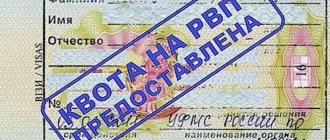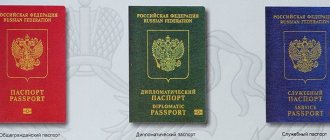Every citizen of the Russian Federation knows that if he finds himself a participant in any legal proceedings, or is involved in the investigative process, then all sorts of deprivations will be relevant for him not only after the completion of the process, but also during it. One of these deprivations may be a written undertaking not to leave, which is given for a certain period and implies some kind of punishment if the promises made in it are not fulfilled. We will talk in more detail about how this document works, why it is signed and how long it is valid for in the presented material.
What is a recognizance not to leave, and why exactly is it signed?
Undertaking not to leave the place and proper behavior
Under a written undertaking not to leave the place and proper behavior (more specifically, this is what the full name of the document actually sounds like) is meant an official document drawn up in accordance with Article No. 102 of the Code of Criminal Procedure of the Russian Federation. This paper is an obligation drawn up in the form of a written document, implying that the person who signed it:
- will not leave his current location without obtaining permission from one of the officials involved in the process, for example, a judge, an employee of the state road safety inspectorate, an investigator, etc.;
- will appear at the place indicated by the official representative of government agencies after an appropriate call as soon as he can reach him;
- will not interfere with the official process by any of his actions, which is now being conducted with his participation, in any of the possible ways.
Article 102. Undertaking not to leave and proper behavior
Please pay attention to the following fact: to give a subscription in the format we are interested in means to accept the mildest of all preventive measures potentially offered to criminals, since all others may turn out to be much more stringent. The bottom line is that the required document is asked to be signed, as a rule:
- suspected of committing a crime of varying gravity;
- during the investigation of the said crime;
- during the consideration of the case within the court, in relation not to the suspect, but to the accused.
Signing the required document does not mean that the person putting his personal signature is admitted to being accused of anything, etc.
What is a recognizance not to leave
Typically, this measure is chosen in relation to those accused of committing crimes of minor or moderate gravity. This includes causing minor bodily injury, theft of small amounts, damage to property, etc. Subscription means that without the knowledge of the official conducting the investigation or inquiry, a person is prohibited from leaving a certain municipality. The reason why the investigator applies such a temporary restriction is most often the fear of the accused leaving for another region.
This preventive measure, like others, can only be applied to a suspect or accused . Its full name is: “undertaking not to leave the place and proper behavior,” which means preventing the citizen from taking the following actions:
- leaving the city or country (the route abroad is closed);
- commission of offenses or crimes during the investigation and trial;
- influence on witnesses or victims, as well as other participants in the case - expert experts, etc.;
- destruction of evidence;
- obstructing the progress of the investigation in any other way.
Subscription is used quite often, in almost 70% of all criminal cases.
This is explained by the simplicity of the election procedure and the absence of the need to collect complete material (as, for example, for house arrest). In cases where there is no serious fear that the criminal will escape, a subscription is almost always chosen against the person. In this case, the accused must have a permanent place of residence. This is logical, since the imposed ban on traveling to another city in the absence of a place of residence is absolutely ineffective. In extremely rare cases, the investigator prescribes this measure of coercion to those persons who have only temporary registration.
Legal experts note that subscription presupposes a kind of voluntary agreement on the part of the accused to submit to such an inconvenient restriction. When a person refuses to sign that he accepts this obligation, no one can force him to do so. At the same time, it must be understood that such a refusal will likely be perceived by the investigator as an intention to impede the investigation. This may well be followed by a decision on the choice of a more stringent measure (detention).
Question: Is it possible to impose a written undertaking not to leave the place for the victim in Russian criminal proceedings?
No, this is not provided for by law. At the same time, the investigator has the right to take away the obligation to appear from a witness or victim, which implies an obligation to appear in the absence of restrictions on freedom of movement.
Who is forced to give a written undertaking not to leave the place?
As we have already said, a citizen who:
- has the status of a suspect in committing a specific offense;
- accused and involved in various court cases.
However, not all of the persons we mentioned can receive a requirement from government agencies to sign this document, because not every one of them can potentially and will want to leave their current location.
Thus, the issuance of this document is directly associated with the suspicion that a person restricted in his movements may:
- express an intention to escape from the inquiry, the preliminary investigative process, or direct participation in court;
- continue to carry out his criminal activity, which, in fact, he is accused of, or any other;
- may threaten witnesses in this case or other participants in various ways;
- will make an attempt to destroy evidence of his actions;
- will try to obstruct this matter in some other way.
The sought preventive measure may also be chosen in order to ensure the execution of a contract issued to a specific person
As a rule, people whose work closely involves business trips have to fill out this document and sign it, because there is a possibility that, under the guise of performing professional duties, they will simply attempt to escape and get lost in another city, or even another state.
However, at the same time, investigators usually do not dare to take the risk of using this measure, which consists in signing a paper with the content of interest to us, regarding persons who are in a particular city not on the basis of:
- registration of a permanent nature;
- or at least temporary.
In other words, in order to decide whether a specific person should sign the paper we are now considering, a representative of official government agencies, for example, a judge, an investigator, a traffic police officer, and other officials, must consider all the factors accompanying the situation:
- as unbiased;
- and subjective.
Provided that the official has doubts about the integrity of the citizen, more serious preventive measures may be taken in relation to the criminal, for example, such as:
- arrest in your own apartment or house;
- sending a person behind bars for the duration of the entire process, etc.
How is a recognizance not to leave the place used?
This procedure involves the following steps:
- The inquiry officer, investigator or judge makes an appropriate decision. It must contain a reference to the crime, and indicate the grounds for choosing a certain preventive measure in relation to the accused.
- The citizen is called to the department and given a document to sign. The official must also explain to the suspect the procedure for appealing the decision.
- The restrictions come into force from the moment the document is signed.
Period of recognizance not to leave
As for the duration of the validity period of the subscription for the one who signed it, it must be said that the paper itself does not contain any clarifications regarding this issue initially, however, at the time of its preparation for a specific person and signing, a clause must be inserted inside the required document, in which will indicate the duration of this subscription. However, the required duration will not be indicated in a specific number of days, but in the designation of the event that will become the point of its end, for example:
- the document we are interested in is given until the end of the investigation stage preceding the main process;
- a recognizance not to leave is given for the period until a court hearing on a specific case, etc.
Provided that the required document was issued in the name of a person suspected of any unlawful act, then provided that the sought person receives charges as a result of the investigation, the subscription must be canceled within 10 days.
According to the letter of the law of our country, no later than 10 days later, the suspect must be charged or the suspicion withdrawn
Provided that a recognizance not to leave is applied to a person who has already been accused of committing a crime, then restrictions on leaving will remain in effect for the entire period that the trial lasts, until the final sentence is passed on him.
Appealing a recognizance not to leave
Any decision of the inquirer, investigator and court can be appealed to the district court at the location of the body that made the contested decision. An appeal can be initiated either by the citizen on whom restrictions are imposed, or by his defense attorney or representative.
The judge will check the legality of the decision. By law, this takes no more than 5 days from the date of receipt of the complaint. An open court hearing is held, to which the author of the complaint and a representative of the body that introduced the restriction are invited. The applicant substantiates his arguments, after which the rest of the participants in the process make their remarks. When the court has heard everyone, it makes a decision. One of two decisions can be made: declaring the official’s decision illegal (then the preventive measure will be canceled) or leaving the complaint unsatisfied.
Next, we’ll look at how to cancel a recognizance not to leave. Any preventive measure is canceled if the period specified in the law has expired (for example, 10 days have passed since the introduction of restrictions against a suspect who was never charged) or if it is no longer necessary. In addition, it can be changed to a more strict one or, on the contrary, softer. In the case of a written undertaking not to leave the place, the second option is impossible, since it is already the mildest preventive measure. Therefore, in practice, such a restriction is not appealed, but is waited until it is canceled by the decision of the investigator or inquiry officer.
It is impossible to cancel a recognizance not to leave due to the illness of a suspect or accused, since it does not interfere with rest and treatment within one’s region. If a patient needs to travel outside a constituent entity of the Russian Federation, he has the right to ask the investigator or the court to do so. The likelihood of a positive decision increases if a citizen provides a referral for treatment in another city from a doctor.
Note!
Cancellation or change of a preventive measure is possible only by order of the inquirer, investigator or judge.
Resolution on recognizance not to leave
To give a recognizance not to leave a person, even one accused of a crime, the official cannot simply verbally issue the required order or indicate his decision. The required procedure, like all other official processes, must be accompanied by the execution of the relevant papers.
So, in order to issue a recognizance not to leave, it is necessary to draw up an appropriate resolution. In the table below we will look at the contents of the document we have just mentioned.
Table 1. Contents of the decision on recognizance not to leave
| Information about the official | Information established by the official | Resolution on serving a recognizance not to leave |
| So, first of all, this document must contain information about the person who has the right to draw up such papers and, moreover, make any decisions. For example: “Senior investigator of the Murom District Department of Internal Affairs of the Karachay Region Karpov P.P.” reviewed the materials of such and such a case. The information sought is mandatory as it is officially included in the form of this resolution. | This section will indicate two things established by the official:
| Provided that the information established by the official will contain information as to why exactly he wants to charge the violator with signing a written undertaking not to leave, then in the resolution the civil servant can indicate that he has chosen for the violator the preventive measure we are considering today. |
Provided that the decision took place, the violator will receive a legal requirement to sign the document of interest to us.
Undertaking not to leave for a minor
The Criminal Code of the Russian Federation states that under a written undertaking not to leave the place, it, like any other preventive measure, can be applied to both adult offenders and minors. The order in which the restrictions are listed in the Code of Criminal Procedure of the Russian Federation gives reason to assume that the most lenient of them is precisely the ban on leaving the locality where the suspect lives. Therefore, it is used most often on minors. Although the Code of Criminal Procedure itself says nothing about such a gradation.
Another preventive measure that is often used for teenagers is supervision. It implies that the responsible person controls the behavior of the teenager, about which he gives a written commitment. They can be assigned to one of the parents, guardians, trustees, teachers, etc. If the person responsible does not cope with his task, penalties may be applied to him.
They gave me a written undertaking not to leave the place, what should I do?
Every citizen of the Russian Federation, whether he is a suspect or an accused, upon receiving a request to sign a document not to leave, has the full legal right to refuse this request to a representative of the law. The required determination was issued by the Constitutional Court of our country, so if you are in a situation where you are charged with a subscription, know that you can refuse.
The official also does not have the right to take a written undertaking not to leave the place from the violator, provided that the second person refuses to accept the obligations specified in the required paper.
However, the fact that you refuse a written undertaking not to leave does not at all guarantee you a calm and comfortable life in the future, since, provided that officials do not have a guarantee that you will not abscond from justice in a neighboring city, or even neighboring country, they may apply stricter preventive measures against you, for example:
- House arrest;
- detention.
However, having received a written undertaking not to leave, you have the right to file a complaint against it. However, after handing over the piece of paper, you always have two options:
- sign consent;
- do not sign the consent.
Undertaking not to leave: sample
You cannot indicate on the paper that the official gave you that you do not agree with it. If you sign, this will indicate your consent, and in this case, if the conditions specified in the document are violated, you may be:
- punished with stricter preventive measures (at best);
- be brought to criminal liability.
However, if you did not sign, officials will not be able to punish you for leaving for another city, since the required legal measure was not imposed, which means it cannot have any consequences, because your signature is not on the recognizance not to leave .
Provided that you endorsed the subscription with your personal signature, and now you regret it, it is necessary to obtain a decision to cancel the sought preventive measure that was applied to you.
Provided that, for example, you are suspected of any crime, however, 10 days after your status was indicated you have not received any charges against you, contact the investigator who is handling your case for a paper with the appropriate content . The required paper will say that it is necessary to cancel the undertaking not to leave the place, since at this stage it was assigned to you unlawfully.
Please note an important fact: after you receive your cancellation order, it is best to take it with you when traveling abroad for a while. Since, unfortunately, the interaction between services for various purposes in our country cannot be called operational, therefore, when you try to fly to another country, they may try to detain you as a criminal.
Violation of recognizance not to leave
Despite the clarification of the Supreme Court of the Russian Federation, which establishes a provision on the basis of which violation of obligations under a written undertaking not to leave cannot be grounds for canceling the measure and replacing it with another, such actions can still lead to leaving the preventive measure unchanged or to the selection of another measure, more strict, which is successfully carried out by the investigation and inquiry bodies in practice. The thing is that, as a rule, violation of the subscription directly impedes the proceedings in a criminal case, therefore, the official has the right to apply a more severe preventive measure for the accused, according to Article 110 of the Code of Criminal Procedure of the Russian Federation - detention.
Undertaking not to leave: personal guarantee
Another form of subscription applied to suspects, accused and defendants, which is called a little differently and is of a different nature, is designated as a subscription for personal guarantee. In this case, personal guarantee will be understood as the assumption by any person friendly of the accused of obligations regarding his proper behavior.
A personal guarantee is not a recognizance not to leave the place, since the required requirement itself is not included in the recognizance.
So, according to this paper, a citizen who is in any way connected with a crime committed undertakes:
- do not interfere with the conduct of business;
- appear before the investigator or other official at the first call.
As for the guarantors of the accused, they also officially participate in this subscription, since they guarantee the fulfillment of obligations by the person who committed the violation.
In this case, the violator will have the following reasons for following the presented requirements and the assumed obligation:
- good relations and respect for guarantors;
- as well as other moral responsibilities.
In order to sign a personal guarantee, it is necessary to obtain the consent of the violator, for whom, in fact, they are vouching. If he gave it, then the following occurs:
- the essence of the matter is explained to the guarantors;
- persons who officially vouch for the accused are told what responsibility the accused and they themselves will bear if he violates the requirements.
It turns out that when a personal guarantee is issued, not only the accused will receive punishment, but also the guarantors. The penalties will be as follows:
- the person for whom they vouched will receive some kind of punishment, also in the form of a preventive measure, only much more severe, for example, in the form of arrest within the walls of his own home or detention;
- the guarantor will be forced to pay up to 100 times the minimum wage to the state.
When issuing a personal guarantee, not only the accused will receive punishment, but also the guarantors.
By the way, to issue a personal guarantee, you need not one additional document, but two, namely:
- decision of an official;
- determination of the judicial authority.
At the same time, it is also necessary to formalize the written obligations of the guarantors on paper. Then, copies of the listed papers must be served on each of the members of the following list:
- directly to the criminal, whoever he may be;
- defense attorney for the accused or suspect;
- to the guarantor.
At the same time, the listed persons must be explained the procedure for appealing this decision, so that if there is any disagreement, they can file a complaint with the appropriate content and have it cancelled.
How to correctly write a written undertaking not to leave
The recognizance form not to leave was approved in our country back in 2003 through the issuance of a corresponding Order by the Judicial Department of the Russian Armed Forces. The number of this form is No. 41.
However, despite the unification of this document, you still need to be able to compose it correctly. We will tell you exactly how to do this without errors in the instructions below.
Step No. 1 – design the header of the form
In this case, the form will not have a separate header, however, it still has sections that must be present on any copy of the undertaking not to leave and proper behavior.
- So, in the middle of the sheet that you will be given, there should be an inscription with the name of the paper, which we mentioned several times in the text: “undertaking not to leave and proper behavior.”
- Next, on the right side of the document, immediately under the title of the paper, you must indicate the city in which you are currently located, and from where you will lose the right to travel until the official end of your case or the assignment of another status to you.
- On the left side of the document, clearly opposite the designated locality, you need to put the date of compilation of the paper in question, making sure to indicate:
- day;
- month;
- year.
Once you have specified the required elements of the text listed above, you can begin to compile the main part of the paper.
If you refuse to comply with the requirements specified in the subscription, you may receive a new measure: imprisonment within the walls of your own home
Step No. 2 - compose the main text of the application
Now we must begin to compile the text of our recognizance not to leave. This must be done by following simple rules, which, however, are best observed so that no problems arise.
1. Thus, the text must be written in the first person. It’s best if it starts like this, with “I, so-and-so, so-and-so.”
2. Next, you need to indicate who you are, that is, write down the name, surname and patronymic of the person who is the violator, and in respect of whom a written undertaking not to leave is being drawn up.
3. Next, you must indicate the address of your current place of residence at the time of drawing up this paper.
4. The next point you will need to indicate a phone number, preferably a mobile one, using which the inquiry officer, investigator or judge can contact you.
5. Next comes the standard text of the document, which you do not need to write by hand, because it has already been compiled and printed on a sheet of paper that is now in front of you. The essence of its content describes the responsibilities that you accept by endorsing the sheet with your personal signature, namely:
- an obligation not to move while the investigation is ongoing;
- do not leave the city limits;
- do not obstruct the investigation;
- appear at the first call of an official.
In addition, the expiration dates for the preventive measure in question are indicated here, indicated in the form, as we have already said, for example:
- before the court verdict comes into force;
- until the end of the investigation, etc.
6. Further, information about the locality in question will be entered here, as well as the number of the article (or articles) of the Criminal Code of Russia, which fully provides for the elements of the crime in respect of which proceedings are currently underway.
7. The last element of this standard text will be considered a paragraph in which the citizen signing this paper will be warned that if he fails to fulfill his obligations and violates the imposed restrictions, he will be forced to undergo more stringent preventive measures against him, according to the Criminal Procedure Code our country.
Step No. 3 – sign the document
Provided that you have really carefully read the text of the document and think that you should sign it, there is only one step left: you need to give the paper legal force by affixing a personal signature after the text.
As soon as your signature is on the sheet, you officially do not have the right to violate the requirements presented to you, otherwise you will necessarily suffer the appropriate punishment
Restriction not to leave: Criminal Procedure Code
This method of restricting personal freedom is used at the stage of trial and investigation. Its official name is established in Art. 112 of the Criminal Procedure Code. In accordance with this article, a written undertaking not to leave and proper behavior is presented in the form of a written obligation. It consists in the fact that a citizen does not have the right to leave his place of residence without the permission of a judge, inquiry officer or investigator. In addition, he is obliged to appear when summoned by these persons and must not interfere with the proceedings in the case in any way.
What consequences await violators?
If you signed the document we are considering today, then your task is to comply with all the requirements specified in it. If you failed to do this, you will have to face the severity of the consequences.
Officials will separately explain what consequences await you at the stage of presenting the requirement to sign the paper of interest to us.
- Thus, one of the punishment measures in the situation we are considering could be the replacement of such a preventive measure as a written undertaking not to leave the place with a more severe one - house arrest . The consequence of house arrest is a ban on leaving the immediate walls of your apartment or house, depending on where you live. Agree, much more inconvenient than a simple recognizance not to leave.
- The second preventive measure will be much more stringent than what we just mentioned in the first paragraph. So, we are talking about taking a violator of official promises into custody directly within the walls of a government agency. Simply put, you will be escorted to jail, where you will spend time until the next court hearing, or even for many years, provided that you are convicted. So why rush there?
Typically, the more stringent measures mentioned above are administered in the following order:
- first, house arrest is imposed;
- if the requirement to remain constantly within the walls of the apartment is violated, the person can be sent to jail, since only in this way can government agencies be sure that this citizen will not abscond from justice.
Is it possible to leave with a written undertaking not to leave?
There are situations when you sign a paper that interests us, and at the same time you suddenly receive an urgent need to go somewhere to a neighboring city, for example, for work, or to visit a sick relative. In this case, I would like to know whether there is still a chance to go somewhere urgently, even while under recognizance not to leave?
We answer: yes, the desired opportunity exists. The requirements that are presented by the document we are interested in are accompanied by various nuances, one of which states that you have the right to travel outside the specific city in which you are located, but only on the condition that you obtain permission from the relevant official.
In certain situations, you may be allowed to travel outside your city
This very, very important nuance has become a real salvation, since you can still go somewhere urgently, due to unexpectedly or expectedly important circumstances that arise for you, provided that you are given permission to do so:
- investigator;
- interrogator;
- judge;
- prosecutor, etc.
However, the required permission can be given by these representatives of government agencies only on the condition that:
- the circumstances of the case do not prevent the person from leaving;
- the need to travel to another locality really exists.
Please note: no matter how urgent the situation, you should not leave secretly. Even if you had no idea of escaping justice, and you were rushing to another city to visit your lonely, sick grandmother, you will still be perceived as a criminal.
It is also worth remembering the following: even if you are given permission to leave your current locality and temporarily go to another city, you should understand that this does not relieve you of the obligation to appear before an official at any time when he requires your appearance . In other words, you still won’t be able to go too far, otherwise you may again face negative consequences.
Decide for yourself whether to sign the paper or not. In any case, you will have to prepare for the expected consequences
Let's sum it up
A recognizance not to leave is a forced measure that is applied to a citizen who is a suspect or accused in any case. However, the person who allegedly committed the crime is not required to sign this document. Thus, according to the law, it has the right to refuse to comply with this requirement, however, at the same time, the violator must be prepared to face more serious consequences, expressed in:
- house arrest;
- taking into custody.
However, if you signed this document, you will also not be safe, especially if you violate the requirements specified in it. However, in this case, you should know that you can also be brought to criminal liability.
The best way out to avoid getting into such situations is to behave decently and refuse to commit crimes of any gravity. If you are falsely accused of a crime, it is better to cooperate with the investigation, and at the same time look for an intelligent defense lawyer.







